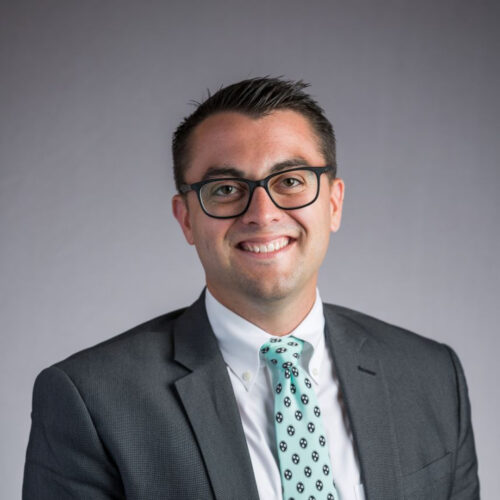
Cameron Norris
2018 John Marshall Fellow
What is your current position?
After wrapping up my clerkship with Justice Thomas, I returned to my former law firm, Consovoy McCarthy Park. My practice focuses on constitutional law, appeals, and administrative law.
What inspired you to choose this career path?
“Choose” is not the right word. I feel more like Forrest Gump, stumbling into some incredible experiences based solely on good timing and good luck. I was very fortunate to learn constitutional law from Professor Jim Blumstein at Vanderbilt Law School and to watch it practiced by Judge Karen Henderson, Judge Bill Pryor, and Justice Clarence Thomas. I now get to practice constitutional law every day at Consovoy McCarthy Park. To anyone considering a boutique law firm, I highly recommend it. It was one of the best career decisions I ever made.
How did you hear about the Claremont Institute
Claremont is extremely well-known in my circles. I heard about the John Marshall Fellowship from my many, many friends who had done it before. They had nothing but the best things to say about the program, and they pointed out that a week in Newport Beach is not the worst way to unwind after a busy year at the Court. They were right.
What is your fondest memory of the Claremont Institute?
There are so many good ones—shooting guns with John Eastman, playing war games with John Yoo, listening to Michael Uhlmann’s incredible stories. But I’m a nerd, so my favorite part was our session on administrative law with Professor Phillip Hamburger and Judge Janice Rogers Brown. Those two are absolute legal heavyweights, especially in administrative law. It was fascinating to hear their perspectives on where the law has been and where it’s headed.
There are all sorts of educational programs out there for current and rising conservative professionals. What do you think makes the Claremont Institute’s Fellowships unique?
Quality. Claremont assembles such an incredible faculty of top-notch scholars, and my class of Marshall Fellows was some of the most intelligent people I’ve ever met. That combination is a special thing.
If you could have a fireside chat and drink with an American Founder, or any great thinker, who would it be, why, and what would you order and discuss?
John Marshall. It would be fascinating to walk through some of his most famous opinions and to get his take on the meaning of every provision of the original Constitution and Bill of Rights. After thoroughly discussing the Founding era, we would have to order a thoroughly modern drink—maybe a Red Bull, Frappuccino, or double IPA.
Who was more important for their time, George Washington or Abraham Lincoln? Why?
That’s a tough one. Washington stood out for his unparalleled leadership, even in an era of unparalleled leaders. But I’d have to go with Lincoln. The American experiment was never going to work until this country dealt with its original sin of slavery. Lincoln’s moral clarity, and his ability to make the case against slavery by drawing on the core principles of the Founding, were profound and helped shepherd this nation through its most trying time.
In which one of the original 13 colonies, looking back on history, would you have wanted to live and why?
My wife is from Plymouth, Massachusetts—aka “America’s Hometown”—and we had our wedding there. So I better say Massachusetts!
What would the artifact be, if you could hold one piece of history from the early founding of our country and why?
George Washington’s sword. How cool would that be?!
What is the greatest challenge facing the United States today?
One challenge that I see in my corner of the world is the conflation of law and politics. I think it is dangerous to view the law solely in terms of preferred outcomes—If you like the result, then the court must have gotten the law right; if you dislike the result, then the court must have gotten the law wrong. Most judges do not view their job that way. They try their best to faithfully interpret the law, even when it leads to outcomes they don’t like. And that is how it should be, if we believe in an independent judiciary and the rule of law.
What books are you currently reading?
My wife and I are expecting our first child, so I am knee-deep in parenting books right now. I’ve also been reading the Catechism of the Catholic Church for my RCIA class. When I finish those, I’d like to dig into Jeffrey Rosen’s biography of William Howard Taft. Taft had such a remarkable career—Solicitor General, Sixth Circuit judge, President, Chief Justice, and much more. In each job, he brought a deep reverence for the Constitution and the limits it places on the power of government. I always enjoy learning more about Taft.
What is the most distinctive attribute/character of the people in the state where you grew up that you genuinely admire?
I’m from a small town in East Tennessee, in the foothills of the Smoky Mountains. I love the area and its people (which is why my family is moving back there next year). Tennessee is known as the Volunteer State because our people signed up to fight in America’s early conflicts. I think that volunteer spirit lives on in Tennesseans’ kindness, generosity, and patriotism.
What is your favorite cultural/recreational pastime (or hobby) and why?
I’m a big sports fan (too big, if you ask my wife). I never miss a Tennessee Volunteers football game. And I like to root for whichever team Lebron James is playing for. He’s the best all-around basketball player of all time, and I won’t hear otherwise.

